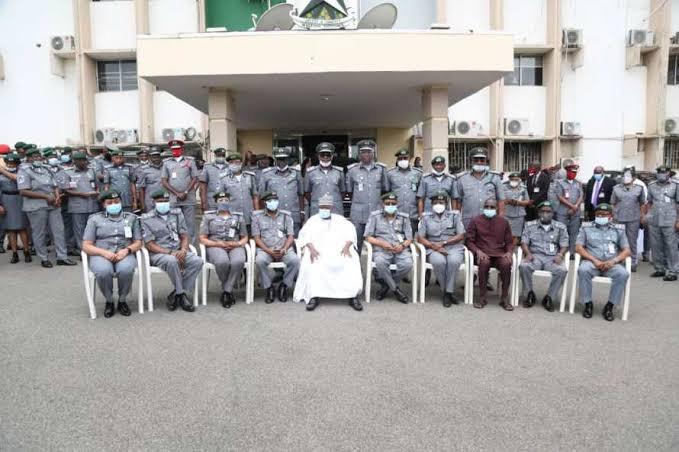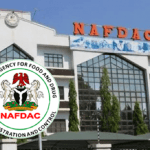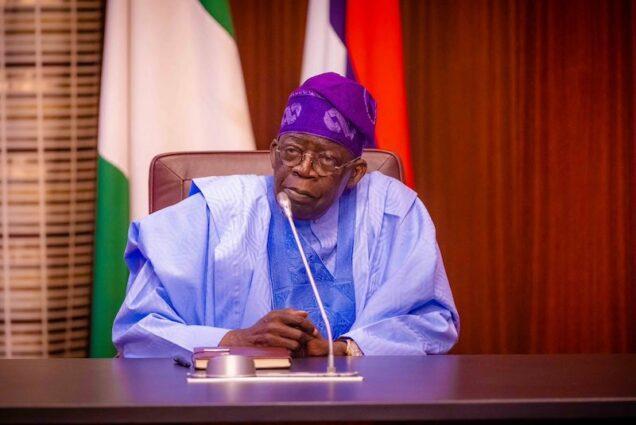Recently, the Federal Government conceded the operations of the Nigeria Customs Service, NCS, to a Chinese company, Huawei Technologies, in a bid to facilitate what it described as ‘e-Customs project’.
The concession is reportedly expected to attract an investment of $3.2 billion with an estimated income of $176 billion to be generated for the Federal Government in 20 years. While the exact details of the concession are not immediately released to the public, the grant of the concession would arguably repose the operations, management, and control of perhaps one of the most sensitive government agencies, responsible for the protection of the nation’s borders against smuggling activities, in the hands of a foreign company.
Being a foreign company subject to the laws of its home country, it is not unlikely that by extension, the Chinese government will maintain some form of oversight in the operations of the concession, thereby unguardedly exposing classified information about the country’s borders to a foreign government.
It would, however, seem that the Federal Government and the management of the Nigeria Customs Service are more focused on the financial prospects of the concession that they are oblivious of the inherent risks which the arrangement may portend in the long run – or simply resting on the assurance that the current administration will not be around to mop up the mess which the arrangement may create in a conceivable future.
Justifying the arrangement and expressing excitement at future financial prospects, the Comptroller-General of the Nigeria Customs Service, Col. Hameed Ali(rtd), reportedly stated that: “The $3.2 billion e-Customs project to be financed by the Africa Finance Corporation, AFC, and managed by Huawei Technologies Limited under a 20-year concession window, when fully implemented, would quadruple Customs’ current N210 billion monthly revenue collection.
We will be making $176 billion within the next 20 years. I appreciate our partners, Huawei Technologies Limited. We had to go to China a couple of times and today we are going to become fully digitised. I thank the AFC for financing this project on behalf of the entire Nigerians. The success of this project will be on the global map. We are going to hit the ground running”.
Those familiar with history will more easily liken the Chinese company’s promise of huge financial returns in exchange for the Federal Government’s concession of its all-important agency to a Trojan Horse – a subtle invitation to debt slavery. The gravity of this reality becomes more glaring if one asks this pertinent question: how will the $3.2 billion investment by the foreign entity be recouped if the long-term financial projections fail to materialise?
Is this not another leprous invitation to further sink Nigeria into a mire of foreign indebtedness without a concrete strategy of defraying the existing one? Besides the most common forms of slavery being military slavery and domestic slavery, one subtle and perhaps the most lethal of them all is debt slavery.
The peril of debt slavery is not due to the danger it personally poses to the obligor, but its huge effect on those who were not party to the said debt. Often, the security for the said debt is usually something of shared interest and not necessarily the personal property of the debt obligor and sometimes, even the terms of the debt repayment may not be fully understandable by the obligor.
Debt slavery as a modern-day form of slavery is the most common method of enslavement with an estimated 8.1 million people bonded to labour having pledged their assets or services as security for the repayment of a debt or some other obligation. Individuals and institutions who are caught in the web of debt slavery rarely set out with such intent in mind but, oftentimes, realise the entrapment too late in the game.
At the initial stage of pleasantries, the euphoria of receiving humongous sums of money, as well as its inherent potential to resolve certain pressing infrastructural and fiscal woes usually obscures any looming danger of non-payment. Therefore, they hurriedly execute documents either without a full grasp of its implications, or against the misconceived belief that the indebtedness will be fully defrayed and would, therefore, not result in any negative implications, no matter what documents may be signed.
Not too long ago, the Ugandan Finance Minister expressed his regret over Uganda’s unwholesome debt marriage to China which would very likely culminate in the forfeiture of its national asset – its airport. He reportedly said: “I apologise that we shouldn’t have accepted some of the clauses”.
In equal terms, the Managing Director of the Ugandan Civil Aviation Authority expressed his regret when he said: “Some 13 clauses were deemed unfriendly and as good as mortgaging the airport and eroding the country’s sovereignty. The most troubling for the aviation bosses was a clause that gave Exim Bank the sole authority to approve withdrawal of funds from the UCAA accounts”.
Back in 2021, there was a report that Nigeria may lose its assets to China over $3.48bn loan which it obtained in several tranches over the years. In the past year, Nigeria’s public debt profile hit an all-time high of N28.63 trillion as of the first quarter of the year 2020 – representing a 4.49% increase from the N27.40 trillion being Nigeria’s indebtedness as at the last quarter of 2019.
A major undermining factor for a country’s economic growth is its huge debt stock and as such, Nigeria’s humongous debts ratio is directly linked to the decades of misrule and financial imprudence of its military and political leaders. With incessant foreign debts being accumulated by successive governments, Nigeria became caught up on crippling foreign debt crisis which, till date, compromised its economic progress and political stability in spite of the paradox of being an oil exporting country.
MSN Africa reported that as of December 31, 2019, Nigeria owed $3.18bn to the Exim Bank of China, $76.13m to France’s Agence Francaise Development, $361.75m to Japan International Cooperation Agency, $32.14m to the Exim Bank of India, and $202.27m to Germany’s Kreditanstalt Fur Wiederaufbua.
A total of $106.33m was paid as debt service for bilateral loans in Q1 2021, with China and India receiving $102.2m and $4.13m, while France, Japan and Germany got. The total debt owed to the five countries increased further to $4.25bn as of June 30, 2021, with China having $3.48bn; Japan, $74.77m; France, $482.15m; India, $34.59m; and Germany, $174.39m.
One thing is certain: Nigeria has no concrete debt-repayment strategy or workable plans to defray its foreign indebtedness, rather, the nation continues to tighten the noose of indebtedness either in the form of direct borrowing or its recent resort to concession the Nigeria Customs Service to a Chinese company for 20 years. The way out of the country’s economic woes is not the ‘handover’ of its national assets or agencies to foreign entities, but the adoption of sound and practicable economic policies which downplays the need to wallow in debt slavery.
Source: Vanguard
















